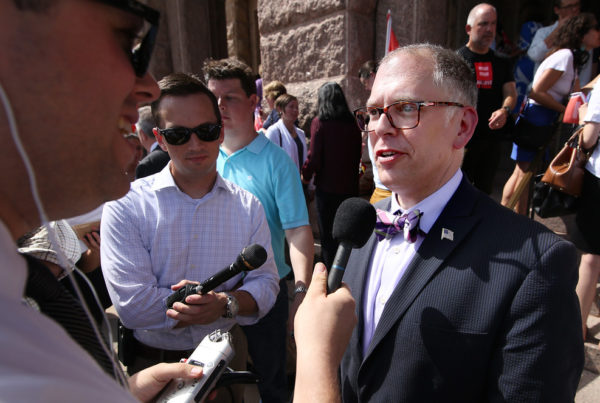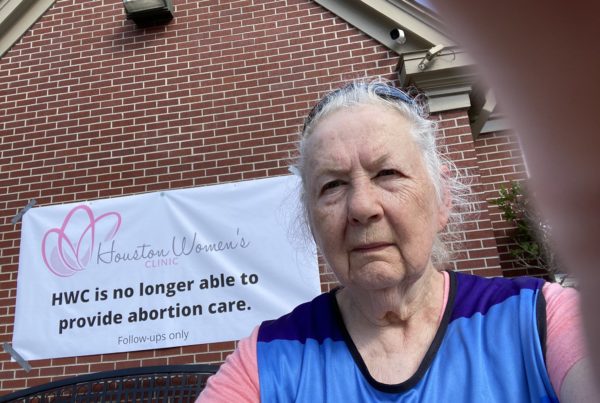Here are the stories on Texas Standard for Monday, June 27, 2022:
Why Texas abortion providers have stopped services
Last month, a poll found that 54 percent of Texans opposed automatically banning all abortions statewide if Roe v. Wade was overturned. Yet even without the 30-day “trigger law” the state already passed, Attorney General Ken Paxton claims abortions are already illegal in Texas – and many abortion care providers have already stopped providing services. How so, and why? Seema Mohapatra, health law professor at Southern Methodist University’s Dedman School of Law, offers more.
How Austin hopes to decriminalize abortion
The leak of the Supreme Court opinion on abortion – which has now officially reversed decades of precedent – gave some opposed to ruling time to prepare. In the case of the city of Austin, that meant working on plans to effectively decriminalize abortion, despite state law. Audrey McGlinchy with home station KUT Austin joins us to share a report.
Anger, anxiety and elation: How Texans are reacting to the end of Roe
After the Supreme Court overturned Roe v. Wade on Friday, North Texans on both sides of the abortion issue had plenty to say. KERA’s Caroline Love shares their reactions.
For the first time in 20 years, Texas has updated its sex education curriculum and it will be taught in the upcoming school year. This comes after years of work from organizations trying to make conversations about sexual health easier for students to access in a state with one of the highest teen birth rates in the nation. And in a post-Roe world, the stakes feel even higher. KERA’s Elena Rivera, who has been writing about this as a part of Kaiser Health News, joins us.
What the abortion ruling means for people with disabilities
Disability rights activists assert the importance of bodily autonomy, including abortion. Lifelong Texan and activist and writer Samantha Chavarria, who recently wrote about Texas’ own abortion restrictions and their ramifications within the disabled community, joins us today.
The scene inside an abortion clinic when Roe v. Wade was reversed
Poppy Northcutt has been part of some historic moments: She was the first female engineer to work in NASA Mission Control and was there for the Apollo 8 moon landing. Fast forward to last Friday: the lawyer and activist was volunteering at Houston’s Women’s Clinic – helping escort patients and coordinate volunteer escorts for women seeking abortions – and was there the moment the Supreme Court decision ending federal abortion protections came down. She joins us with her perspective.
What is substantive due process?
In his concurring opinion to the Supreme Court’s opinion on Friday overturning Roe v. Wade, conservative Justice Clarence Thomas called to reconsider rulings that legalized contraception and same-sex relationships. Thomas said the court could do so by doing away with a doctrine called “substantive due process.” What is the legal doctrine he’s talking about? University of California-Los Angeles reproductive health legal expert Cary Franklin offers more.
All this, plus the Texas Newsroom’s state roundup and Wells Dunbar with the Talk of Texas.















